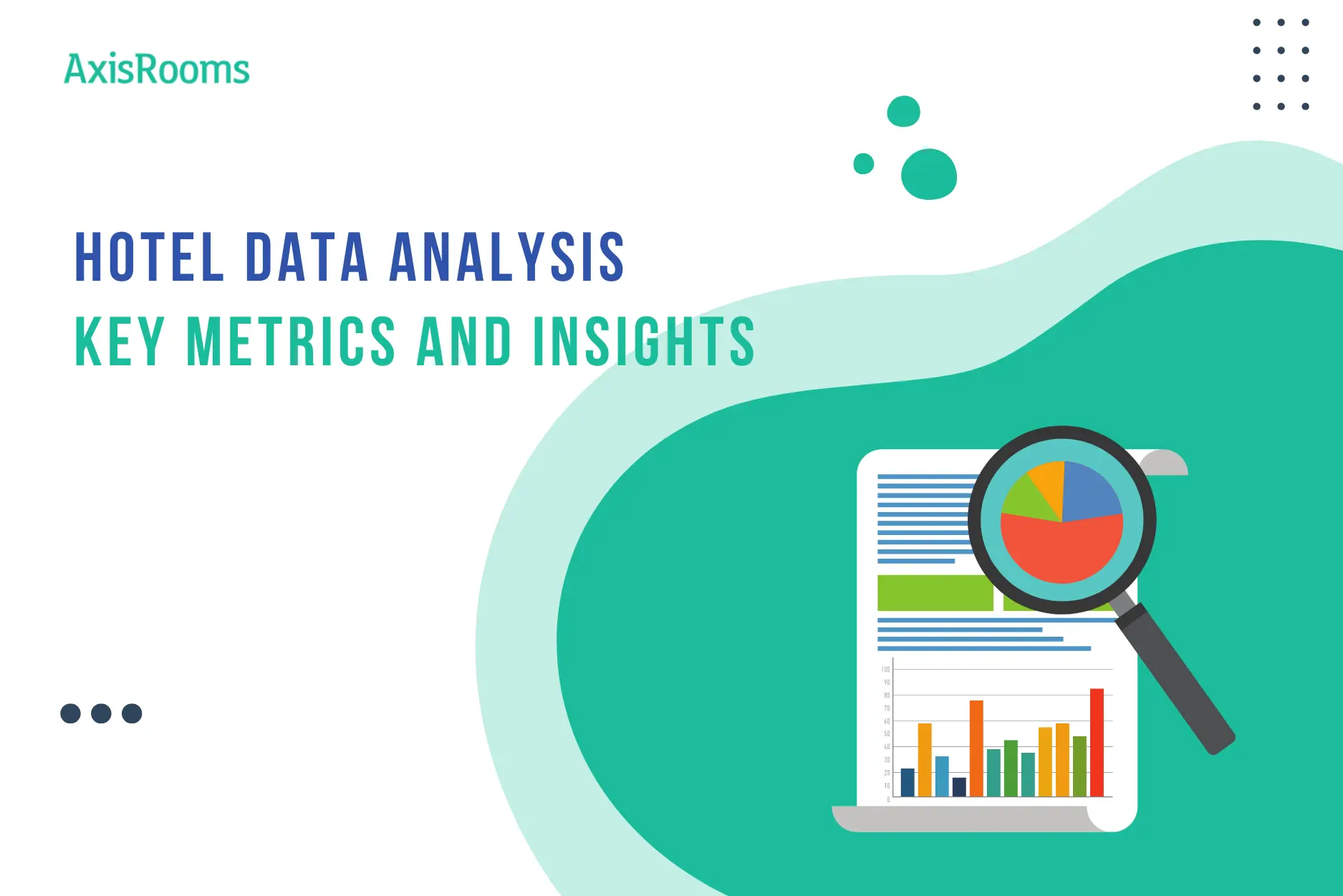In today’s hotel industry, data is more important than ever. It helps you make smart decisions that can improve your hotel's operations, increase guest satisfaction, and boost revenue. Hotel data analysis gives you valuable insights into how well your hotel is performing, where improvements are needed, and what guests are looking for.
Using data allows you to understand your hotel’s strengths and weaknesses. This information can help you run your hotel more efficiently, stay competitive, and increase profits.
Key Metrics for Hotel Data Analysis
To keep your hotel running smoothly, you need to track certain important metrics. These key data points can give you a clear view of your hotel's performance.
Hotel Occupancy Data
Occupancy rate shows the percentage of rooms that are booked. It’s a key indicator of how well your hotel is doing. High occupancy means strong demand, while low occupancy may suggest you need to adjust pricing, marketing, or operations.
Hotel Reservation Data
Tracking reservations helps you spot trends, such as which types of rooms are booked most often or when guests are booking. This data lets you improve your marketing and guest experience by understanding guest preferences and behavior.
Revenue Per Available Room (RevPAR)
RevPAR is a key measure of profitability. It is calculated by dividing your total room revenue by the number of available rooms. A high RevPAR means your rooms are generating more revenue, showing the effectiveness of your pricing strategy.
Average Daily Rate (ADR)
ADR in the hotel industry shows the average price per room. It helps you analyze how your room rates are affecting revenue. Comparing ADR with RevPAR tells you if you are balancing occupancy and pricing well.
Benchmarking Data in the Hotel Industry
Benchmarking is the process of comparing your hotel’s performance with others in the industry. It helps you understand where you stand and what improvements you need to make.
Hotel Benchmarking Data
By comparing key metrics like ADR, RevPAR, and occupancy with competitors, you can identify areas where you excel or lag behind. This helps you set realistic goals and make improvements.
Hotel Data Intelligence
Real-time data tools can give you up-to-date insights into market trends. This helps you adjust your strategy quickly, staying ahead of competitors and reacting to guest demands.
Analyzing Hotel Booking Data
Booking data offers valuable insights into guest behavior and preferences. Understanding this data can help you improve your distribution strategy. Analyzing your booking data can help you identify which channels, like OTAs or direct bookings, are bringing in the most guests. You can also spot seasonal trends and adjust your pricing or marketing strategies accordingly.
How to Read Hotel Data Reports
Hotel data reports can sometimes be complex, but understanding them is key to making smart decisions. Here’s how to break them down:
- Hotel Revenue DataLook at metrics like RevPAR, ADR, and total revenue to get a clear picture of how much money your hotel is making. These numbers help you understand the effectiveness of your pricing and booking strategies.
- Key MetricsReports will also show metrics like GOPPAR (Gross Operating Profit Per Available Room) and CPOR (Cost Per Occupied Room). These help you understand profitability and costs, allowing you to adjust your budget and operations for better efficiency.
Leveraging Hotel Data for Revenue Growth
Peak Season Analysis: Use historical data to identify peak seasons, allowing you to adjust pricing and inventory to maximize bookings during high-demand periods.
Events & Conferences: Leverage data from local events and conferences to attract attendees, offering special rates or packages tailored to their needs.
Revenue Management System: Implement an RMS to track real-time data, helping you optimize rates, distribution channels, and occupancy levels for increased profitability.
Guest Segmentation: Analyze the types of guests staying at your property to create personalized offers and enhance their experience, driving repeat bookings.
Unique Selling Propositions (USPs): Highlight the most appreciated aspects of your property based on data, such as amenities or location, to attract more bookings.
Sales Data Insights: Use sales data to understand booking patterns and revenue sources, helping you focus efforts on the most profitable segments.
Guest Feedback: Regularly analyze guest feedback to identify popular services or amenities and improve offerings, enhancing guest satisfaction and boosting loyalty.
Increase your Hotel Revenue with AxisRooms
Additionally, AxisRooms' channel manager facilitates seamless distribution across multiple online travel agencies (OTAs), ensuring rate parity and reducing the risk of overbookings. With features like performance analytics and competitive benchmarking, hotel owners can make data-driven decisions that not only enhance visibility but also improve overall profitability. By implementing AxisRooms' solutions, hotels can create tailored promotions and campaigns that attract more bookings, thereby increasing their revenue potential in a competitive market.
The Future of Data in the Hotel Industry
Data is shaping the future of the hotel industry. By using hotel data analysis and benchmarking, you can improve your hotel’s performance, boost guest satisfaction, and increase profits. Staying updated with data trends will keep your hotel competitive and ready for future challenges.
The right data will help you make better decisions, optimize your operations, and create a winning strategy for success in the hotel industry. Stay informed, use your data wisely, and watch your hotel thrive!


